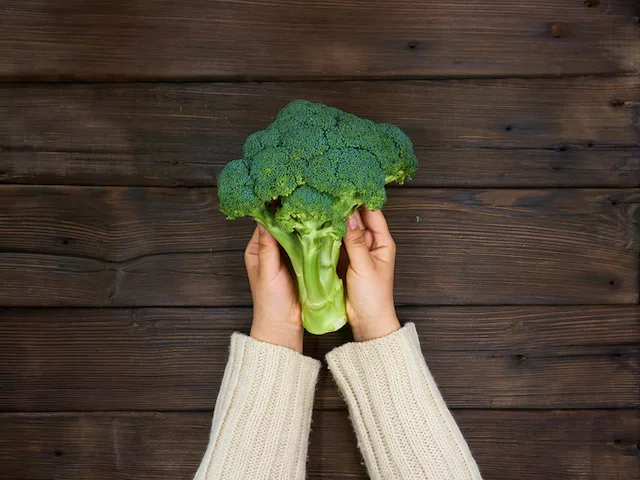Gas and bloating: the difference between the two

Many people who have indigestion often experience gas and bloating. As a result, the symptoms are often used interchangeably. Although these symptoms often occur together, they are two very different symptoms. Knowing the difference between the two can help you effectively manage gas and bloating.
This article explains the difference between gas and bloating and provides a list of foods that can help relieve digestive discomfort.
The difference between bloating and flatulence
The main difference between gas and bloating is that gas is the release of air through burping or rectum whereas bloating describes a feeling of pressure or fullness in the abdomen.
These two symptoms are closely related. For example, people may or may not feel bloated. But bloating, on the other hand, is often caused by trapped gas in the colon.
Causes of Bloating and Gas
Typically, gas and bloating occur when too much air is swallowed and accumulates in the digestive tract. Excess air can enter the body when eating or drinking too quickly, using a straw, chewing gum, and sucking on candy. Wearing loose dentures and smoking can also bring in excess air and cause gas and bloating.
Eating foods that are difficult to digest can also cause gas. When nutrients are not fully digested in the stomach and small intestine, the bacteria in the colon are forced to break them down through fermentation. Fermentation causes gas to accumulate, leading to increased abdominal pressure and often causing bloating.
Foods to Prevent Gas and Bloating
While uncomfortable, these are a normal part of the digestive process. In fact, according to an article in Harvard Health, most people pass gas about 14 times a day. While this is normal, there are ways to reduce gas and bloating for a more comfortable digestive experience.

One of the best ways to prevent gas and bloating is to limit your intake of foods that are hard to digest. Here is a list of foods to avoid:
- Beans and lentils (Pro Tip: Soaking beans and lentils before cooking helps break down hard-to-digest starches, making them easier to digest!)
- Cruciferous vegetables
- Dairy
- High sodium/processed foods
Carbonated drinks like soda and pop can also cause gas and bloating.
Other Ways to Prevent Bloating and Gas
Besides diet, other lifestyle changes can also help prevent these two nasty problems.
One of the easiest ways to do this is to add a comprehensive digestive enzyme supplement to your daily routine. Digestive enzymes help break down nutrients that are difficult to digest. By doing so, they help minimize the need for colonic fermentation, which can lead to gas and bloating.
HUM’s Flatter Me digestive enzymes have been clinically studied and shown to effectively reduce bloating within 30 minutes of taking them. In fact, a 2024 placebo-controlled clinical study found that people who took Flatter Me with a test meal experienced a 2-inch reduction in bloating.
Other tips to help prevent gas and bloating include:
- Avoid eating large amounts of food
- Chew slowly
- Drink plenty of water during and between meals
- Slowly increase your fiber intake
- Take a walk after dinner
- No straw
When to see a doctor
Making dietary and lifestyle changes should help relieve gas and bloating. However, these persistent symptoms can sometimes signal a more serious condition.
Talk to your doctor about your digestive problems if you experience:
- Chronic diarrhea or constipation
- fever
- Painful or persistent gastrointestinal symptoms
- Bloody or dark stools
- Unintentional weight loss
In conclusion
All in all, these two symptoms are common and interrelated digestive issues. Remember, gas is the expulsion of air through burping or rectum, while bloating is the feeling of fullness or pressure in the abdomen. These symptoms can be significantly relieved with simple adjustments to your diet and lifestyle. However, persistent or severe digestive discomfort may indicate a more serious condition that is best managed by a doctor.


 Anal Beads
Anal Beads Anal Vibrators
Anal Vibrators Butt Plugs
Butt Plugs Prostate Massagers
Prostate Massagers
 Alien Dildos
Alien Dildos Realistic Dildos
Realistic Dildos
 Kegel Exercisers & Balls
Kegel Exercisers & Balls Classic Vibrating Eggs
Classic Vibrating Eggs Remote Vibrating Eggs
Remote Vibrating Eggs Vibrating Bullets
Vibrating Bullets
 Bullet Vibrators
Bullet Vibrators Classic Vibrators
Classic Vibrators Clitoral Vibrators
Clitoral Vibrators G-Spot Vibrators
G-Spot Vibrators Massage Wand Vibrators
Massage Wand Vibrators Rabbit Vibrators
Rabbit Vibrators Remote Vibrators
Remote Vibrators
 Pocket Stroker & Pussy Masturbators
Pocket Stroker & Pussy Masturbators Vibrating Masturbators
Vibrating Masturbators
 Cock Rings
Cock Rings Penis Pumps
Penis Pumps
 Wearable Vibrators
Wearable Vibrators Blindfolds, Masks & Gags
Blindfolds, Masks & Gags Bondage Kits
Bondage Kits Bondage Wear & Fetish Clothing
Bondage Wear & Fetish Clothing Restraints & Handcuffs
Restraints & Handcuffs Sex Swings
Sex Swings Ticklers, Paddles & Whips
Ticklers, Paddles & Whips















